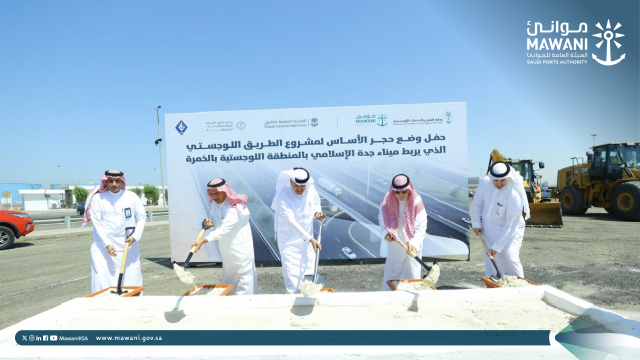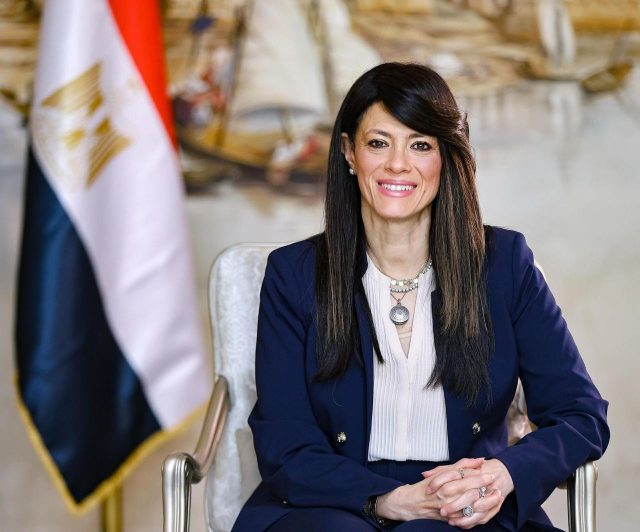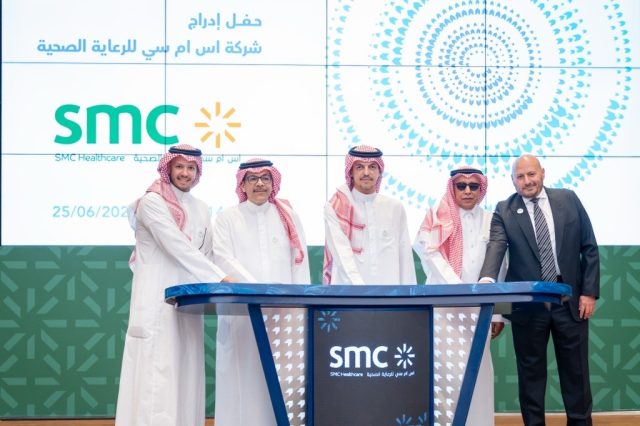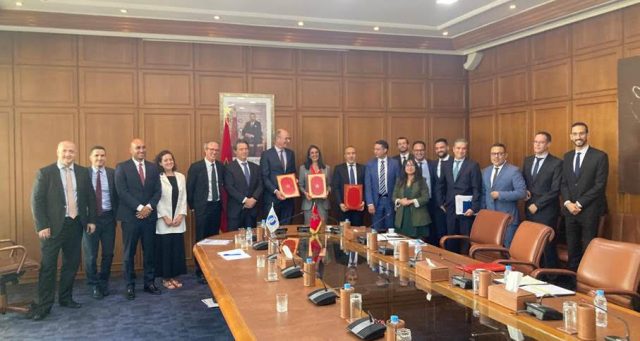The Ministry of Planning, Economic Development, and International Cooperation announced that the Egyptian economy continued its robust recovery, with real gross domestic product (GDP) growth accelerating to 4.77% in the third quarter of FY2024/2025 — the highest quarterly rate in three years — up from 2.2% in the same quarter last year. This pushed average growth for the first nine months of the fiscal year to 4.2%, compared to 2.4% during the same period a year earlier. This robust performance signals a sustained recovery and growing resilience of the economy amid global uncertainties. The strong outturn also reflects the continued implementation of the reform agenda, under the National Structural Reform Program, which is instrumental in maintaining macroeconomic stability, improving the governance of public investment, enhancing economic competitiveness, and expanding private sector participation.
Key sectors driving expansion include non-oil manufacturing sector, maintaining its upward performance, alongside significant growth in both the tourism sector (represented by restaurants and hotels) and the telecommunication sector – despite continued decline in the Suez Canal, due to geopolitical tensions, and the extractive industries sector.
On the expenditure side, growth was notably supported by net exports, which contributed approximately 2.7 percentage points to overall GDP growth. This positive contribution was driven by strong expansion in both goods and services exports, with total exports rising by 54.4% – significantly outpacing the 18.7% increase in imports.
Moreover, private investment accelerated at constant prices by 24.2% year-on-year during the third quarter of FY2024/2025, exceeding public investment for the third consecutive quarter and accounting for 62.8% of total implemented investments (excluding inventory). However, this increase was not sufficient to offset the sharp decline in public investment, which contracted by 45.6% year-on-year at constant prices. As a result, the overall contribution of investment to GDP growth was negative, reducing the overall growth rate by approximately 2.44 percentage points. Meanwhile, the share of public investment continued declining recording 37.2%, reflecting the government’s strategic shift toward restructuring capital expenditure, enhancing the governance of public investment, and creating greater space for private sector participation.
Moreover, high-frequency indicators underscore a continued recovery of economic activity in Egypt during the third quarter. The industrial production index (excluding crude oil and petroleum products) grew by 16.03% in Q3 FY2024/2025, rebounding from around 4% contraction a year earlier. This recovery was led by strong output in key industries such as motor vehicles (93%), ready-made garments (58%), beverages (34%), paper (20%), and textiles (17%).
Despite ongoing global uncertainties, preliminary data suggest that Egypt’s real GDP growth in the fiscal year 2024/2025 is on track to surpass the initial target of 4%, supported by a rebound in private investments, a solid recovery in non-oil manufacturing activity, and strong GDP performance over the first nine months of the fiscal year.
Key Highlights:
- In line with ongoing efforts to enhance productivity and export-led growth, sectoral growth showed strong performance across key tradable sectors, with notable accelerations in tourism (23%), non-oil manufacturing (16.03%), and telecommunications (14.7%). This momentum was supported by solid expansion in financial intermediation, insurance, electricity, wholesale and retail trade, and construction sectors.
- The non-oil manufacturing sector continued its recovery, recording positive growth for the fourth consecutive quarter, reaching 16% during Q3 FY 2024/2025, marking a clear rebound from the contraction of around 4% recorded in the same period of the previous fiscal year. The sector was the largest contributor to GDP growth during the quarter, adding 1.9 percentage points to the overall rate. The continued strong performance aligns with ongoing efforts to boost investment in the industrial sector and provide targeted incentives to support industrial activity.
- The non-oil manufacturing growth was also associated with a notable improvement in industrial export performance, as exports of finished goods recorded an annual increase of 12.7% during the third quarter, reinforcing the role of the industrial sector as a key driver of growth. The ready-made garments sector stands out as a prime example, having achieved annual growth exceeding 23.7% during the same period, benefiting from shifts in the global trade landscape. This reflects the resilience of the ready-made garments sector and its ability to respond swiftly to global demand.
- On the other hand, some economic activities continued to decline during Q3 of FY 2024/2025. Suez Canal activity fell by 23.1%, compared to a sharper contraction of 51.6% in the same quarter of the previous fiscal year, which marked the onset of reduced vessel traffic due to escalating geopolitical tensions. These disruptions have continued to weigh on canal revenues to date.
- In addition, the extractive industries sector continued to decline, with oil and natural gas extraction contracting during the quarter. However, new discoveries and field development is expected to gain traction in the coming period, supporting future production capacity and mitigating the sector’s downturn.
- On the expenditure side, growth was notably supported by net exports, which contributed approximately 2.7 percentage points to overall GDP growth. This positive contribution was driven by strong expansion in both goods and services exports, with total exports rising by 54.4% – significantly outpacing the 18.7% increase in imports.
The Ministry of Planning, Economic Development, and International Cooperation announced that the Egyptian economy continued its robust recovery, with real gross domestic product (GDP) growth accelerating to 4.77% in the third quarter of FY2024/2025 — the highest quarterly rate in three years — up from 2.2% in the same quarter last year. This pushed average growth for the first nine months of the fiscal year to 4.2%, compared to 2.4% during the same period a year earlier. This robust performance signals a sustained recovery and growing resilience of the economy amid global uncertainties.
Dr. Rania Al-Mashat, Minister of Planning, Economic Development, and International Cooperation, highlighted that the Egyptian economy continued its robust recovery in the third quarter of the current fiscal year, demonstrating growing resilience amid mounting global uncertainties. The higher-than-expected GDP growth was driven by strong performance in key sectors—most notably non-oil manufacturing, tourism, and telecommunications—reflecting the tangible impact of Egypt’s macroeconomic policies and structural reform agenda. Dr. Al-Mashat emphasized that this momentum builds on the solid recovery observed since the start of the fiscal year and aligns with the government’s broader strategy to promote private sector–led growth and advance the transition toward a more competitive, export-oriented economy focused on tradable goods and services. This progress was also supported by expansion across other key sectors, including financial intermediation, insurance, and construction.
The Minister also underscored the pivotal role of the private sector in driving Egypt’s development trajectory, highlighting a sustained rise in private investment, which grew by 24.2% and outpaced public investment for the third consecutive quarter. As a result, private investments accounted for 62.8% of total investments (excluding inventory), underscoring the impact of policies designed to empower the private sector and elevate its role as a key engine of economic growth. This upward trend not only reflects growing investor confidence but also affirms Egypt’s commitment to sound governance of public investment and advancing reforms to unlock private sector potential.
The growth seen in Q3 was evident in the continued recovery of non-oil manufacturing, which accelerated by 16% during Q3 of FY 2024/2025, compared to a contraction of 4% in the same quarter of the previous year. This notable growth in the third quarter coincided with the government’s continued efforts to scale up investment in the industrial sector, which is considered a priority area under the National Structural Reform Program. This was also clearly reflected in the performance of the industrial production index (excluding crude oil and petroleum products), which recorded an average growth rate of 16.03% during the third quarter. Several industries posted significant growth rates, including motor vehicles (93%), ready-made garments (58%), beverages (34%), paper manufacturing (20%), and textiles (17%).
The manufacturing sector growth was also associated with a notable improvement in export performance, as exports of finished goods recorded an annual increase of 12.7% during the third quarter, reinforcing the role of the industrial sector as a key driver of growth. The ready-made garments sector stands out as a prime example, having achieved annual growth exceeding 23.7% during the same period, benefiting from shifts in the global trade landscape. This reflects the resilience of the ready-made garments sector and its ability to respond swiftly to global demand.
Several other economic sectors continued to register positive growth rates during Q3. In particular, the tourism sector (represented by hotels and restaurants) maintained its strong performance recording a growth rate of 23%. This was driven by a rise in the number of tourists, which reached 4 million during Q3 of the current fiscal year, while the number of tourist nights increased to 41 million.
Other sectors – such as financial intermediation, insurance, electricity, and construction – also recorded solid positive growth rates of 17.34%, 7.7%, 5.76%, and 3.13%, respectively. This broad-based sectoral expansion underscores the growing diversification of Egypt’s economic growth drivers, in alignment with the government’s strategic vision for structural transformation and inclusive development across all segments of the economy.
On the other hand, some economic activities continued to decline in the Q3 FY 2024/2025. Suez Canal activity declined by 23.1% during the quarter, although at a slower pace compared to the same quarter of the previous year, which witnessed a a sharper contraction of 51.6%. This earlier decline was triggered by the onset of reduced vessel traffic due to escalating geopolitical tensions. These disruptions have continued to weigh on canal revenues to date. Similarly, the extractives sector continued to decline, recording a 10.38% decline due to a slowdown in the oil and natural gas sub-sectors. Petroleum activity contracted by 9.52% and natural gas activity by 20.5%. However, investment in new discoveries and field development is expected to gain traction in the coming period, supporting future production capacity and mitigating the sector’s downturn.
On the expenditure side, growth was notably supported by net exports, which contributed approximately 2.7 percentage points to overall GDP growth. This positive contribution was driven by strong expansion in both goods and services exports, with total exports rising by 54.4% – significantly outpacing the 18.7% increase in imports.
Moreover, private investment accelerated at constant prices by 24.2% year-on-year during the third quarter of FY2024/2025, exceeding public investment for the third consecutive quarter and accounting for 62.8% of total implemented investments (excluding inventory). Nevertheless, this increase was not sufficient to offset the sharp decline in public investment, which contracted by 45.6% year-on-year at constant prices. As a result, the overall contribution of investment to GDP growth was negative, reducing the overall growth rate by approximately 2.44 percentage points, Meanwhile, the share of public investment continued declining registering 37.2%, reflecting the government’s strategic shift toward restructuring capital expenditure, enhancing the governance of public investment, and creating greater space for private sector participation.
Moreover, high-frequency indicators confirm the continued improvement in Egypt’s economic activity during the third quarter, with the Purchasing Managers’ Index (PMI) pointing to a sustained recovery in private sector performance during Q3 of FY 2024/2025. At the beginning of 2025, the PMI recorded 50.7 points – its highest level in 50 months. In February, the index remained above the neutral threshold, registering 50.1 points, indicating continued improvement in the performance of Egypt’s non-oil private sector. Although it declined slightly in March to 49.2 points, it remained close to the neutral level, reflecting relative stability and a continued recovery trend.
Building on this momentum, and as part of the government’s ongoing efforts to strengthen economic recovery and lay the foundation for sustainable growth, the Parliament approved the Economic and Social Development Plan for FY2025/2026 in June 2025, following its initial submission on April 15. The plan projects a growth rate of 4.5% and maintains the ceiling for public investments, which is capped at EGP 1.154 trillion in FY2025/2026. This comes within the broader efforts to rationalize and strengthen the governance of public spending in a way that supports macroeconomic stability, while also expanding the role of the private sector and foreign direct investment in financing development projects. The plan also places strong emphasis on advancing human development sectors, with around 47% of treasury-funded public investments allocated to health, education, and social services. This focus reflects the government’s deep commitment to investing in human capital as the cornerstone for achieving inclusive and sustainable development.
Finally, despite ongoing global uncertainties, preliminary data suggest that Egypt’s real GDP growth in the fiscal year 2024/2025 is on track to surpass the initial target of 4%, supported by a rebound in private investments and a solid recovery in non-oil manufacturing activity. Average growth for the first nine months of the fiscal year reached 4.2%, pointing to stronger-than-expected momentum in the real economy.
Although the outbreak of the war between Israel and Iran on June 13, 2025 initially raised concerns over regional spillovers and volatility in global markets, the actual impact on oil, commodity, and financial markets has so far been relatively contained. This has reinforced the government’s decision to maintain its FY2025/2026 growth target of 4.5%, as outlined in the Economic and Social Development Plan, while remaining vigilant in monitoring geopolitical developments and reassessing risks as needed.

















